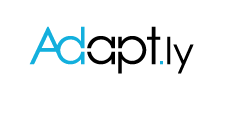Adaptly, a startup that manages ad campaigns across multiple social networks, just announced that it has raised $10.5 million in a Series B round of funding. At the same time, it’s launching a new product called Evergreen to help advertisers promote their social network content.
The round was led by Valhalla Partners, with participation from Time Warner Investments and Vivi Nevo — all three are investing in Adaptly for the first time. The company previously raised a $2.7 million round from First Round Capital, Charles River Ventures, Lerer Ventures, and others. Adaptly says all of its previous backers invested in the new round.
Among other things, the money will be used to fuel international expansion, says CEO and co-founder Nikhil Sethi.
As for the new Evergreen product, Sethi says that brands have worked and spent to build large followings on Facebook and other social networks, but that doesn’t mean those fans are actually seeing the content that the brands create — for example, Facebook estimates that an average post on a Facebook Page only reaches about 16 percent of that Page’s fans. For companies who want to reach a bigger percentage, Facebook announced an ad product called the Reach Generator, where companies pay to promote their content. Sethi says that Evergreen has a similar idea — using advertising to build on the organic reach of your content — but it works across multiple social networks, and is accessible to smaller advertisers. (Though initially Adaptly is focusing on Facebook, and the first customer it’s announcing is Kraft Foods.)
One of the more “forward-thinking” features, Sethi says, is the fact that Adaptly is pushing advertisers to promote content that’s actually good. More specifically, “We won’t let an advertiser put money behind a piece of content that doesn’t pass an organic threshold of engagement.”
Sethi also argues that this is part of a larger shift in the social advertising world, away from what he calls “the CP-something model,” where advertisers measure their success using metrics like eyeballs (CPM), clicks (CPC), and actions (CPA). Instead, Evergreen is closer to the traditional TV, radio, and print advertising, where the metrics are more focused on reach.
“Some people will argue that it’s a shame that [this model] is reappearing, but for the social space, it’s necessary to become more validated against the marketer’s budget,” Sethi says.
